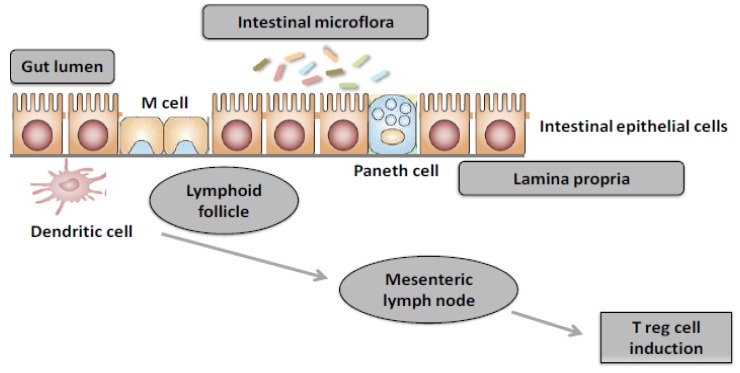Figure 1.
Intestinal microflora drives oral tolerance development. Under homeostatic condition, antigens from selected components of intestinal microflora are acquired in the lamina propria and presented in the mesenteric lymphonodes by CD 103+ dendritic cells. Through mechanisms mainly involving transforming growth factor (TGF) β and retinoic acid, dendritic cells induce the production of gut homing Treg cells. Treg cells actively suppress allergic sensitization to food.

